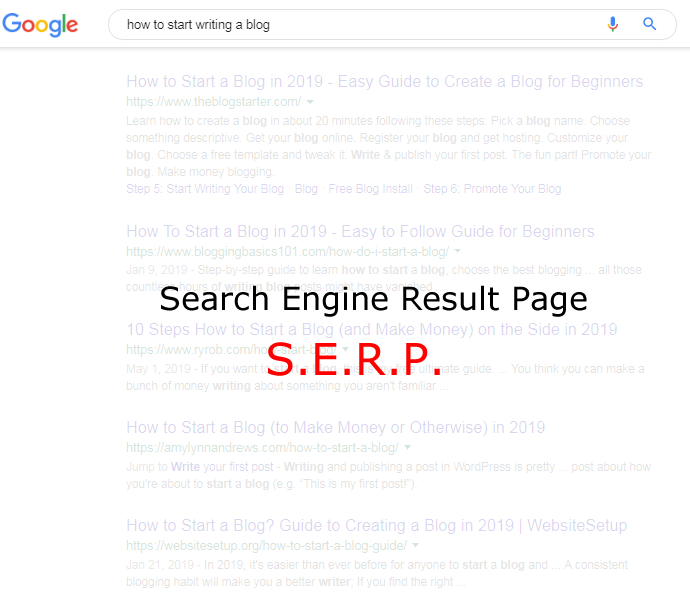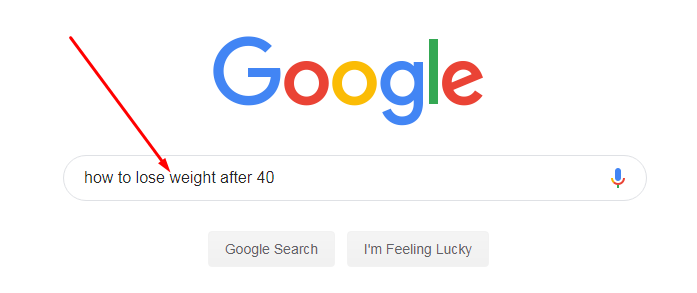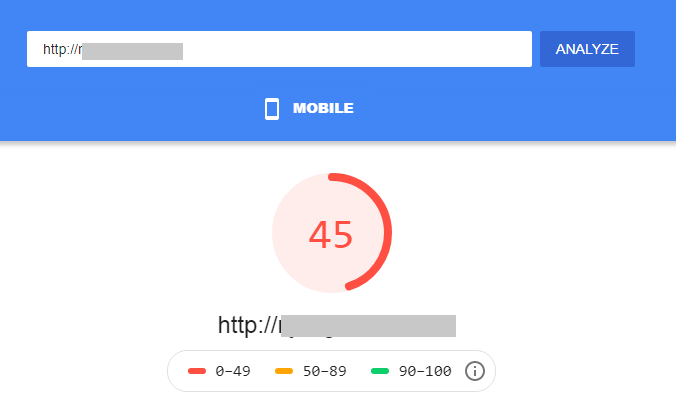Everyday, I come across people who are either confused and frightened each time they hear the word SEO or come across some complex SEO Tool like SEMrush, or folks who are just hearing about SEO for their first time.
I do perfectly understand the frustration. There is always a First Time in everyone’s life so if you are new to it, you don’t have to worry.
Folks like Matt Cutts, Brian Dean, Rand Fishkin, Bill Slawski and many others considered SEO experts were where you are today. No one was born an expert. It’s a matter of time and determination to be listed with the experts.
So in this post, I’m facing the noobs. People who don’t know much. People who get startled or catch a cold each time they hear they need traffic from Google and other search engines to make money online.
Some of us have done all that’s told. We try our best with all the keyword stuffs and backlink things. Yet it’s still like Google really hates us. The monster is never sending us traffic.
Table of Contents - What is covered in this post
SEO for newbies – Back to the basics
I’m not about giving you the story of SEO or founders of Google. Google is just a player in the SEO industry. Well, it’s the biggest name though.
I want to help you with fair understanding (with no technical jargon) what SEO is and how to start seeing results.
Basically, SEO means Search Engine Optimization. It’s everything a website owner or online marketer does to have his/her web pages appear on Search Engine Result Pages (SERPs) after a user runs a search.
We’ve all used a search engine at some point to find something. Maybe Google, Bing, Yahoo, etc. What about searching for something on this website?
Yes we have local search functions that allow readers run a search for documents on specific websites. As a matter of fact, a huge portion of the web is powered by search.
So as a website owner or blogger, one of the things you should be concerned about is to have your website show up on search each time a searcher is looking for something related to your services or products.
When searchers want something, they open a search engine (these are websites that allow people to find something on the Internet – Google, yahoo, bing, etc).
They will then type the information they want in the search engine. The search engine will first try to understand what they are looking for (What’s the search intent). Then go to the Internet to find the information for the searcher. Once they find something, they will display a long list of results.
NB: The search engine actually turns to its index (The information stored in its database) to find the information for the searcher.
The page where the results are shown is generally called SERP (Search Engine Result Page):

It’s up to the searcher now to go through the list and click on the most appropriate entry to see if it’s exactly what he wants.
How does the searcher perform a search?
Now, if the searcher is a 45 year old female who wants some help on how to lose weight, she may go to Google.com and type something like this in the search box:

Now the phrase “how to lose weight after 40” is called keyword or key phrase. All the searcher wants is the best material (for people of her age) to help her burn fat.
Google’s responsibility is to fetch the most accurate solution for this searcher. The question is, Google is a computer right? How does it know the best solution?
There are millions of pages on the Internet carrying some information about weight loss. It’s going to be a hell of work to filter through and bring just the best to present to the searcher:

The searcher doesn’t expect Google to come back and say something like “Sorry there are too many results. I’m confused” She wants the best results to be summarized and presented on the first page. Period!
Now, if you are a weight loss coach who has created a comprehensive weight loss course targeting moms over 40 who want to shed some extra pounds, you certainly want Google to show your entry on the first spot of page #1.
But here are two crucial questions for you:
- Are you sure you have the best course on weight loss for ladies after 40?
- How do you let Google know yours is the best?
If Google can really be sure that out of the million courses out there, yours is the best, trust me Google will show your course to the searcher. But that is exactly where the core of SEO lies – helping Google know you are the best.
In the early days of search engines, you could play some tricks (black hat SEO) and deceive the search giant into thinking your course has no match. But today, you’ll have to really have the value. Trying to play deceitful games with the search master will really be hard.
Google will only end up showing the best. So you have to struggle to let it know you are the best.
Establish that you are the best first
How do you know your course is the best (or on the list of the best). If you are guilty of mediocrity, be sure to have failed. But there are a couple of things around you to help you know the value of what you have come up with:
- Customer reviews
- Refunds
- Conversion rates
- Market results
- Etc
It’s important to know if what you’ve come up with is worth people’s time and money. Remember you cannot deceive Google.
The first step to rank on Google is to:
- Be the best in what you do
- Have prove that you are the best
You don’t just claim to be the best. You must prove it. I want you as a completely new person to understand that ranking on Google and getting search result is not luck. It’s based on merit.
If you are a blogger and you don’t see your entries on Google page #1, chances are that some people are better than you.
It’s not just about being good. You have to be the best. Your articles have to be the best in helping the readers achieve what they want.
The real meaning of search terms = Search intent
Google has grown. It’s now able to understand the real meaning of search phrases not just words. The search engine is able to correctly interpret and understand exactly what the searcher wants. It’s mission is to get the best for its users. There is no room for amateur content these days.
For instance,
If a searcher is looking for the best PCs under 500, the search engine can correctly interpret this search term.
Now, if you think that PC XYZ is the best (according to your list of specifications) and you spend your time writing about it and optimizing your content for a specific keyword, you may be seriously disappointed.
That’s where many of us are making a mistake today. We create long form content dropping the same keyword here and there. That used to work in the past. But today, Google is just seeing you as struggling and amateurish if you do that.
The searcher with this keyword is not really clear what he wants. He’s mentioned just one factor which is price. But there are many other unanswered questions:
- Does he want it for gaming, browsing the Net, etc.
- What is the processor capacity?
- What about the memory?
- Etc
The search engine perfectly understands all of these points. So the best content could be one that presents a list different PCs with details, allowing the searcher to choose.
If you are targeting a keyword that leaves unanswered question, you must do a couple of things to rank your content:
- Write a list of possible questions around what the searcher is looking for.
- Make sure you provide answers to these questions in your content.
- Demonstrate expertise in your content.
Read more about Semantic SEO here
Demonstrate expertise to rank
Google and other search engines are looking for complete content.
Here is a post I did on how to create in-depth, complete content
This is one thing you must understand. You have to be able to cover any topic you write on to its depth. That’s getting very important in today’s SEO. Complete and in-depth means touching every area about the topic.
By doing this, you will be using topical terms, making your content semantically optimized. Don’t mistake keyword alternatives, synonyms and variations for topical keywords.
I see this a lot of times and it’s a mistake. Some SEO keyword tools are still to be updated in this respect. What they generate as LSI version of your main keywords is simply a list of synonyms and variations.
Look at this list:
- How to lose weight fast
- How to lose weight quick
- Quick weight loss program
- how to lose weight fast naturally
- How to lose weight diet
These are simply variations of the the same keyword. There is no Latin Semantic Indexing (LSI) keywords and playing with this will not change anything. But using a Semantic SEO tool, you may come up with topical keywords like:
- Low carbohydrate
- Glass of water
- Metabolic rate
- Processed foods
- High calorie foods
Developing sentences and paragraphs under these semantic keywords will position your content on Google’s priority list.
Where to do SEO for your blog
I said earlier that SEO is everything a website owner does to his site to rank on search engines and get natural traffic. But where do you do these SEO practices?
- On the server that hosts your site
- On the technical elements of your site
- On the mobile aspects of your site
- On the content you publish on your site
- On other website related to your own.
Generally, you are going to hear about On Page SEO, Off Page SEO, Technical SEO, Content SEO, Mobile SEO, etc. These are the same things I have said in these 5 points and I will help you understand them. Having a clear picture of these points is a major step towards ranking and getting search traffic.
1 – Begin from where your site is hosted (technical SEO)
Your web host could just be the reason you are struggling to rank in search engines. Poorly configured, sluggish and old fashion servers will only deliver your web pages to failure.
There is something called Server response time, which is the amount of time it takes for a web server to respond to a request from a browser. If this is slow, then your whole site will be slow, no matter how optimized your other resources are.
According to Google in this document, you should aim for a server response time under 200ms. Google doesn’t want searchers to waste precious time on your site waiting for it to load. Here are my recommendations to host your site:
- Siteground for small sites ( They came out #1 in this survey)
- WPX for for more busy sites
2 – Your theme, plugins and images (Technical)
Still in line with the point above, you must make sure your theme, plugins and images are not responsible for the slow load speed of your site. Most of us go in for free or cheap themes but these end up killing out SEO marketing.
However, speed and performance plugins like iTheme Security have tools to help lighten your blog and improve your SEO
3 – The mobile aspects of your site (mobile SEO)
 Is your site mobile friendly? That’s a big question today because a huge portion of traffic to websites today comes from mobile devices. That’s to say many people are browsing using their mobile phones and tablets.
Is your site mobile friendly? That’s a big question today because a huge portion of traffic to websites today comes from mobile devices. That’s to say many people are browsing using their mobile phones and tablets.
If your theme or template is not designed to perfectly fit on mobile phones, Google is going to figure that out and push your pages away from its cherished positions.
4 – The content you publish
This area of SEO marketing is fully your responsibility. It has a huge impact on your ranking. Here are my recommendations:
- Do your proper keyword research. You may want to use a tool like SEMrush
- Optimize your content for semantic relevance. Don’t focus on keyword placements. Get topically related keywords and phrases.
- Write long form content. This allows you to rank for many more keywords.
- Write more for your readers. Format properly and use relevant images.
- Keep your readers longer on your articles to increase dwell time. Give them reasons to click through and read more on your website. This helps a lot in your SEO.
5 – What about other websites (Off page SEO)?
What others think about your website and articles is crucial. If you publish content that provides value to your audience, you stand a high chance to get your readers link back to it.
That’s essentially the core of Off Page SEO – things that happen on other websites to impact your search ranking. The more people link back to your site from theirs, the more your chances to rank.
But don’t take it for a simple phrase. There is more to getting backlinks that boost SEO:
- The links must be coming from relevant content
- The links should have a link-juice transfer power (dofollow)
- The links should not be coming from toxic domains (Read more here)
- The more contextual, the better.
- Get the links from high authority domains.
It may seem difficult to get these links. Yes. For starters, this isn’t going to be like a piece of cake. But you can step out and build the links in several ways:
- Submit guest posts on relevant websites
- Outsource your Off Page SEO to guest posting services or SEO firms
- Drop comments on blogs with links back to your site
- Buy backlinks (See more on this here)
- Etc
Conclusion
I want to end it here but there is still a lot to say. You’ve however gotten a glimpse of what SEO is and basically how what’s required to rank today.
Drop questions in the comment box or content me should you need any SEO help.

Comments are closed.